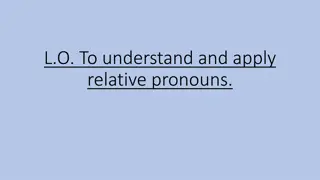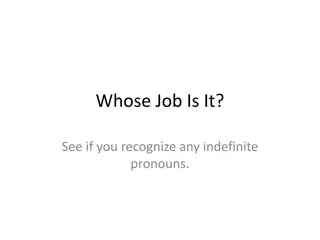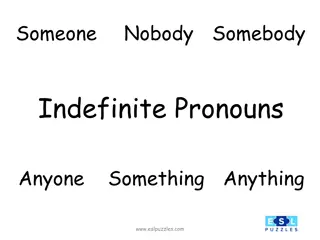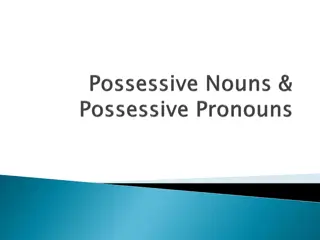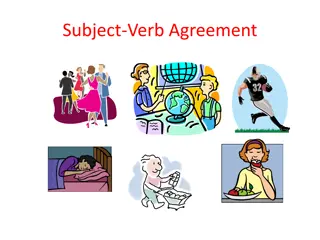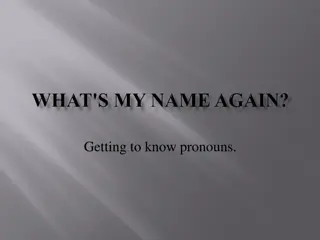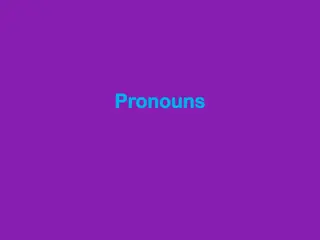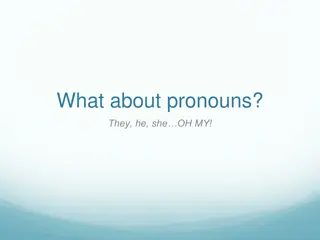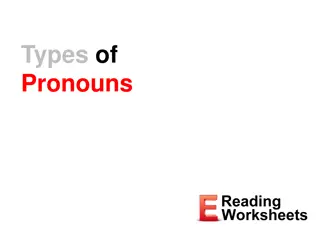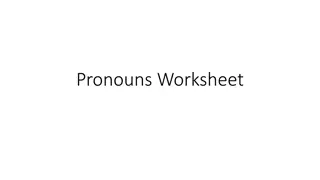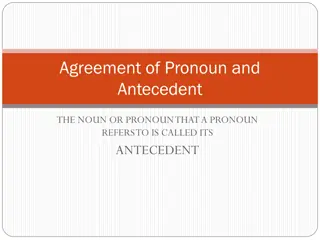Understanding Singular and Plural Indefinite Pronouns
Explore the difference between singular and plural indefinite pronouns with examples. Learn about singular indefinite pronouns like 'each' and 'nobody', plural ones such as 'several' and 'few', and those that can be both singular and plural like 'some' and 'all'.
Download Presentation

Please find below an Image/Link to download the presentation.
The content on the website is provided AS IS for your information and personal use only. It may not be sold, licensed, or shared on other websites without obtaining consent from the author. Download presentation by click this link. If you encounter any issues during the download, it is possible that the publisher has removed the file from their server.
E N D
Presentation Transcript
Writing Lab Agreement-Indefinite Pronouns
Singular Indefinite Pronouns The following pronouns are singular: each, nobody, something, anybody, no one, somebody, one, everybody, someone, neither, anyone, anything, either, nothing, everyone, everything, and other pronouns ending in one, body, and thing. Example: Everybody is going to the party. Example: Only one of my friends is going to the party. Example: Neither of my friends is going to the party.
Plural Indefinite Pronouns The following pronouns are plural: Several, few, both, and many. Example: Several of my friends are going to the party.
Singular and Plural Indefinite Pronouns The following pronouns may be singular or plural depending on either their antecedent (the word or phrase to which they refer) or on the noun or pronoun in the prepositional phrase: Some, all, most, none, and any. Example: Some of the mail has arrived. Example: Some of the letters have arrived.
Thats all, folks! This lesson is part of the UWF Writing Lab Grammar Mini-Lesson Series Lessons adapted from Real Good Grammar, Too by Mamie Webb Hixon To find out more, visit the Writing Lab s website where you can take a self-scoring quiz corresponding to this lesson



